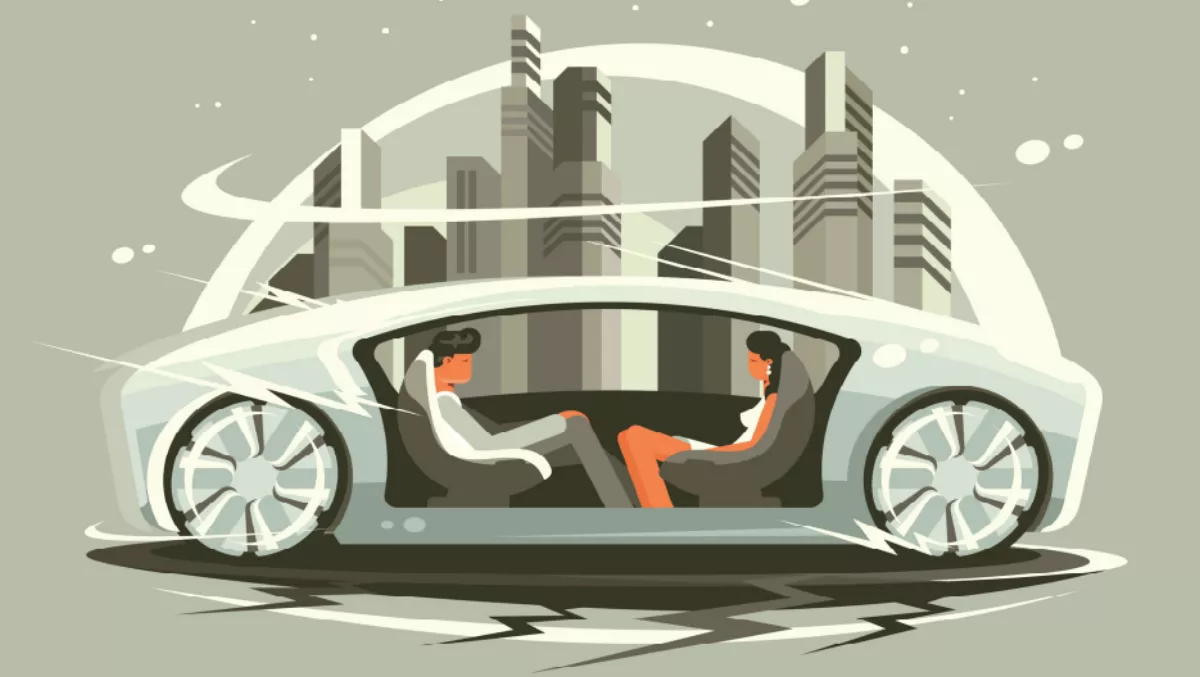
Intel: Autonomous driving will spark new 'space race' worth $7 Trillion
Intel Corporation has released the findings from a new study that delves into the yet-to-be-realised economic potential when today's drivers become idle passengers.
Coined the 'Passenger Economy' by Intel, the study has predicted a gargantuan economic trajectory growing from USD$800 billion in 2035 to $7 trillion by 2050.
History has shown that technology is the catalyst for massive societal transformation and that businesses must adapt or risk failure. New digital business models ushered in by personal computing, the Internet, ubiquitous connectivity and smartphones gave birth to whole new economies, and Intel says autonomous driving will do the same.
"Companies should start thinking about their autonomous strategy now. Less than a decade ago, no one was talking about the potential of a soon-to-emerge app or sharing economy because no one saw it coming," says Intel CEO Brian Krzanich.
"This is why we started the conversation around the Passenger Economy early, to wake people up to the opportunity streams that will emerge when cars become the most powerful mobile data generating devices we use and people swap driving for riding."
Intel affirms autonomous driving and smart city technologies will enable the Passenger Economy, and that it will completely reconfigure entire industries and invent new ones thanks to the time and cognitive surplus it will unlock.
Urbanist and mobility futurist, Greg Lindsay says the announcement is a rallying cry to the world to put its best minds on this challenge as it is not unlike the space race of the 1960s.
"The future of mobility, economic advancement and the emergence of new growth opportunities like the Passenger Economy demand ongoing dialogue," Says Lindsay.
"I am excited to partner with Intel, take this discussion on the road and look at solutions through the lens of the diverse industries that will shape our future – from automakers to investors and policy makers to startups."
Co-author of the study and president of Strategy Analytics, Harvey Cohen says autonomous technology will drive change across a range of industries and define a new landscape, the first green shoots of which will appear in the business-to-business sector.
"The emergence of pilotless vehicle options will first appear in developed markets and will reinvent the package delivery and long-haul transportation sectors," says Cohen.
"This will relieve driver shortages around the world and account for two-thirds of initial projected revenues."
Key highlights of the report include:
- Business use of mobility-as-a-service (MaaS) is expected to generate $3 trillion in revenues, accounting for 43 percent of the total Passenger Economy
- Consumer use of MaaS is expected to account $3.7 trillion in revenue or nearly 55 percent of the total Passenger Economy
- $200 billion of revenue is expected to be generated from rising consumer use of new applications and services that emerge from the Passenger Economy
- Conservatively, 585,000 lives can be saved due to self-driving vehicles in the era of the Passenger Economy from 2035 to 2045
- In the most congested cities, more than 250 million hours of consumers' commuting time per year is expected to be freed up because of self-driving vehicles
And possible future scenarios include:
- Car-venience: From onboard beauty salons to touch-screen tables for remote collaboration, fast-casual dining, remote vending, mobile health care clinics and treatment pods, and even platooning pod hotels, vehicles will become transportation experience pods
- Movable movies: Media and content producers will develop custom content formats to match short and long travel times
- Location-based advertising: Location-based advertising will become more keenly relevant, and advertisers and agencies will be presented with a new realm of possibilities for presenting content brands and location

